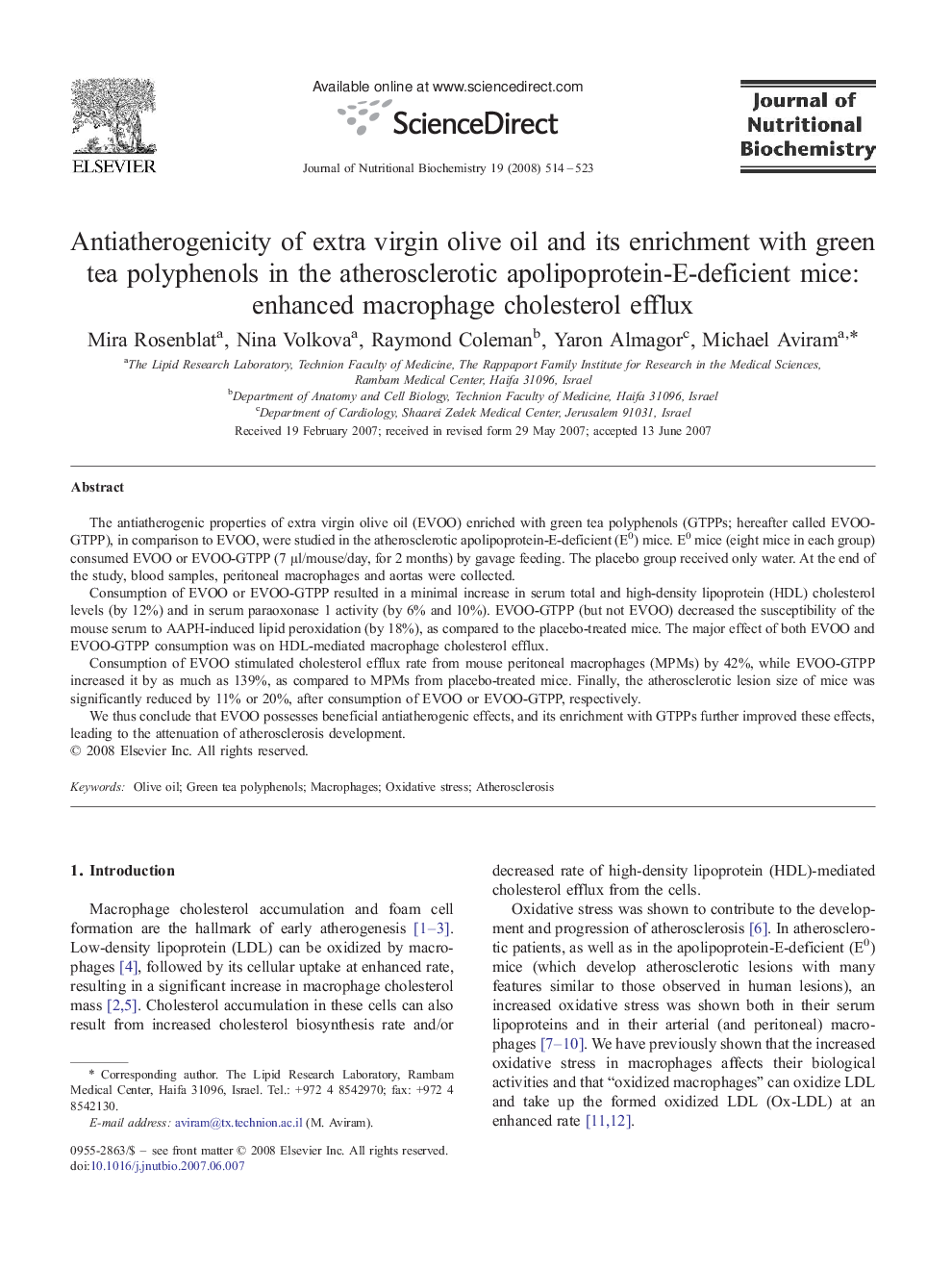| Article ID | Journal | Published Year | Pages | File Type |
|---|---|---|---|---|
| 1990549 | The Journal of Nutritional Biochemistry | 2008 | 10 Pages |
The antiatherogenic properties of extra virgin olive oil (EVOO) enriched with green tea polyphenols (GTPPs; hereafter called EVOO-GTPP), in comparison to EVOO, were studied in the atherosclerotic apolipoprotein-E-deficient (E0) mice. E0 mice (eight mice in each group) consumed EVOO or EVOO-GTPP (7 μl/mouse/day, for 2 months) by gavage feeding. The placebo group received only water. At the end of the study, blood samples, peritoneal macrophages and aortas were collected.Consumption of EVOO or EVOO-GTPP resulted in a minimal increase in serum total and high-density lipoprotein (HDL) cholesterol levels (by 12%) and in serum paraoxonase 1 activity (by 6% and 10%). EVOO-GTPP (but not EVOO) decreased the susceptibility of the mouse serum to AAPH-induced lipid peroxidation (by 18%), as compared to the placebo-treated mice. The major effect of both EVOO and EVOO-GTPP consumption was on HDL-mediated macrophage cholesterol efflux.Consumption of EVOO stimulated cholesterol efflux rate from mouse peritoneal macrophages (MPMs) by 42%, while EVOO-GTPP increased it by as much as 139%, as compared to MPMs from placebo-treated mice. Finally, the atherosclerotic lesion size of mice was significantly reduced by 11% or 20%, after consumption of EVOO or EVOO-GTPP, respectively.We thus conclude that EVOO possesses beneficial antiatherogenic effects, and its enrichment with GTPPs further improved these effects, leading to the attenuation of atherosclerosis development.
